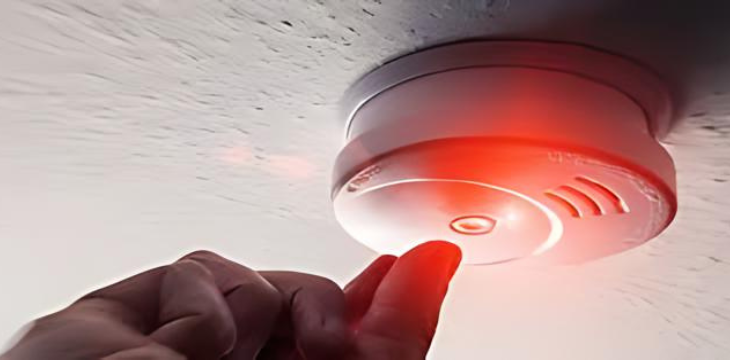Smoke alarms are a crucial component in maintaining the safety and security of your home. They not only provide a necessary early warning in the event of a fire but also play a significant role in the realm of home insurance. Understanding the impact of smoke alarms on your insurance policy can be beneficial in not just ensuring compliance with safety standards but also potentially lowering insurance premiums.
Table Of Contents
Importance of Smoke Alarms in Risk Assessment
Insurance companies assess the risk associated with insuring a property based on various factors, including the presence and quality of smoke alarms. A home equipped with fully functional, strategically placed smoke alarms is perceived as a lower-risk investment by insurers. This assessment is rooted in the reduced likelihood of extensive fire damage when early detection systems are in place.
Statistical Evidence
Statistics from fire services across the UK indicate that homes with smoke alarms have a significantly lower incidence of fatal fires. This data is utilised by insurance companies to evaluate the risk profile of a property. A lower risk profile often translates into more favorable insurance terms.
Compliance with Safety Standards
The UK government has regulations in place that mandate the installation of smoke alarms in rented properties. Homeowners too, while not mandated, are strongly advised to install smoke alarms to conform to safety standards. Insurance providers often require proof of compliance as part of the policy agreement.
Impact on Insurance Premiums
The installation of smoke alarms can positively affect your insurance premiums. Many insurance companies offer discounts or lower rates for homes that are better equipped to handle emergencies such as fires.
Prevention over Claims
Insurance companies operate on the model of risk. Anything that decreases the likelihood of a claim (such as the early detection of fires) is favorable. Thus, installing smoke alarms can be seen as a preventive measure, which is highly encouraged by insurers.
Understanding Insurance Policies
It is imperative for homeowners to understand the details of their insurance policies. Some insurers may not only offer lower premiums but also may require the installation of smoke alarms as a condition of insuring the property. Failing to adhere to these requirements can result in higher premiums or denial of claims when they arise.
Technology and Smoke Alarms
The evolution of smoke alarm technology has introduced smarter, more efficient models into the market. These advances are recognised by insurance companies and can further influence insurance agreements.
Smart Smoke Alarms
Modern smoke alarms can now connect to home automation systems and alert homeowners on their smartphones in case of a fire, regardless of their location. This technology allows for quicker responses, which can mitigate the severity of fire incidents, potentially reducing the likelihood and magnitude of claims.
Regular Maintenance and Checks
It is not just the presence but also the condition of smoke alarms that insurers consider. Regular maintenance and functional checks are essential to ensure they are in optimal working condition, as this directly affects their effectiveness in preventing extensive fire damage.
Legal Considerations
There are specific legal requirements related to the installation and maintenance of smoke alarms in homes. Non-compliance can not only be risky in terms of safety but can also influence legal liability and insurance claims.
Legislation
UK law specifies where and how smoke alarms should be installed in homes. For instance, they must be installed on every floor of the house and tested regularly. Insurance companies expect homeowners to adhere to these regulations.
Case Law
There are instances where claims have been denied or reduced because the insured party failed to maintain functional smoke alarms. Awareness of such legal cases can underscore the importance of compliance with both legal and insurance requirements.
Choosing a Professional Smoke Alarm Company
Selecting the right professionals for the installation and maintenance of your smoke alarms is crucial. Certified companies not only ensure proper installation but also help in maintaining the alarms as per the manufacturer’s and safety guidelines.
Certification and Standards
Ensure the company chosen is certified and adheres to UK standards for smoke alarm systems. This certification can often be a requirement of your home insurance policy.
Regular Service Agreements
Many companies offer regular servicing and maintenance contracts. These agreements ensure your smoke alarms are always functioning correctly and compliance with safety and insurance guidelines is maintained.
Summary
Smoke alarms play a pivotal role not only in home safety but also in the context of home insurance. They can significantly affect the terms and conditions of your policy, potentially lower your premiums, and influence claims. It’s essential for homeowners to install, maintain, and regularly check their smoke alarms to meet both safety and insurance requirements.
Engaging a professional smoke alarm company ensures compliance, enhances safety, and maintains the validity of insurance policies. It’s a small investment that can safeguard both your home and your peace of mind.


